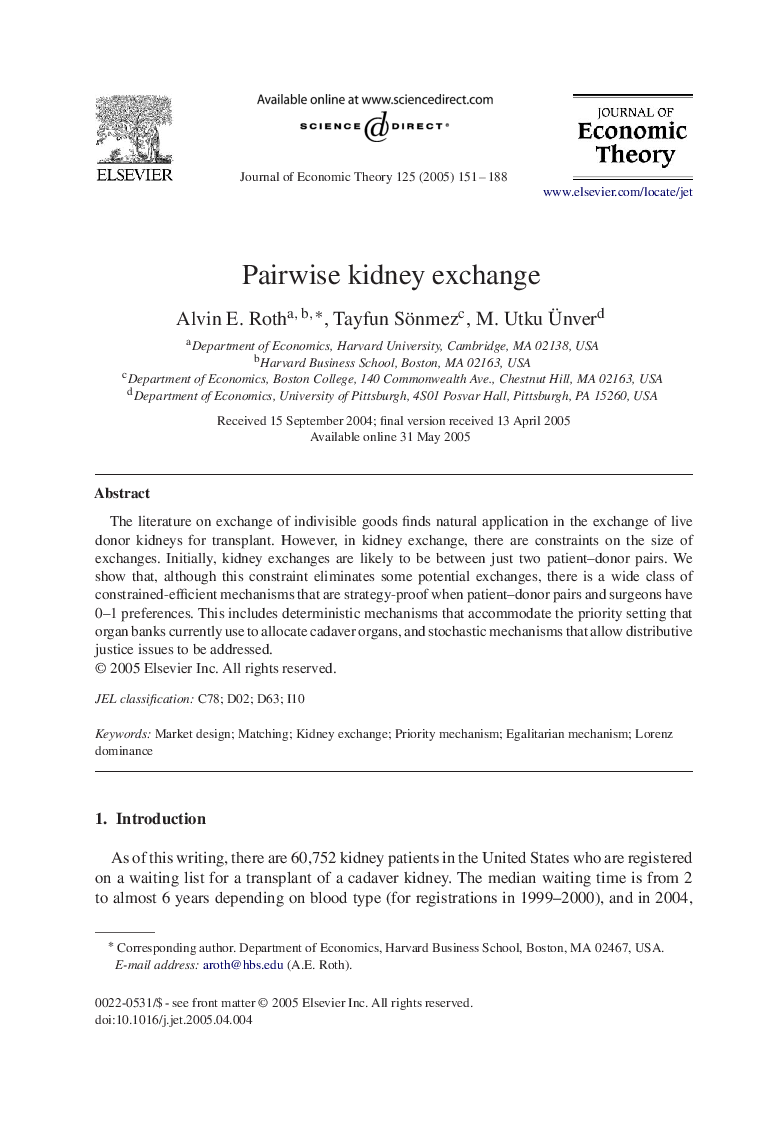| Article ID | Journal | Published Year | Pages | File Type |
|---|---|---|---|---|
| 10474695 | Journal of Economic Theory | 2005 | 38 Pages |
Abstract
The literature on exchange of indivisible goods finds natural application in the exchange of live donor kidneys for transplant. However, in kidney exchange, there are constraints on the size of exchanges. Initially, kidney exchanges are likely to be between just two patient-donor pairs. We show that, although this constraint eliminates some potential exchanges, there is a wide class of constrained-efficient mechanisms that are strategy-proof when patient-donor pairs and surgeons have 0-1 preferences. This includes deterministic mechanisms that accommodate the priority setting that organ banks currently use to allocate cadaver organs, and stochastic mechanisms that allow distributive justice issues to be addressed.
Related Topics
Social Sciences and Humanities
Economics, Econometrics and Finance
Economics and Econometrics
Authors
Alvin E. Roth, Tayfun Sönmez, M. Utku Ãnver,
